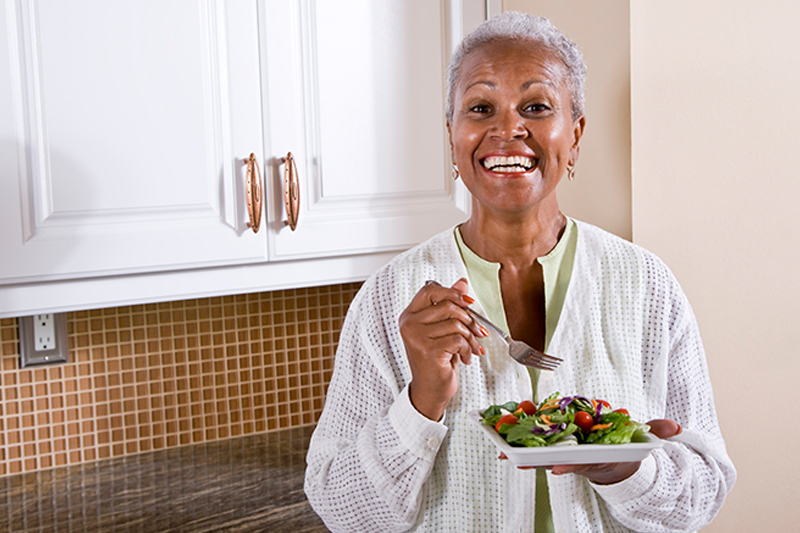A well-balanced diet is essential for the health and well-being of elderly individuals. Here are some key considerations for the best nutrition for the elderly:
- Protein: Protein is important for maintaining muscle mass and strength in older adults. Good sources of protein include lean meats, poultry, fish, eggs, dairy products, legumes, and nuts.
- Fiber: Fiber is important for digestive health and can help prevent constipation, a common issue in older adults. Good sources of fiber include whole grains, fruits, vegetables, legumes, and nuts.
- Calcium and Vitamin D: Calcium and vitamin D are important for maintaining bone health and preventing osteoporosis. Good sources of calcium include dairy products, leafy green vegetables, and fortified foods. Vitamin D can be obtained from sunlight, fortified foods, and supplements.
- Omega-3 fatty acids: Omega-3 fatty acids are important for heart health and may also help reduce inflammation. Good sources of omega-3s include fatty fish like salmon, walnuts, flaxseeds, and chia seeds.
- Hydration: Older adults may be at increased risk of dehydration, so it’s important to drink an adequate amount of fluids throughout the day. Water is the best choice, but other fluids like herbal tea, broth, and milk can also contribute to hydration.
- Micronutrients: Older adults may have different nutrient needs than younger individuals, so it’s important to ensure they are getting an adequate intake of vitamins and minerals. A varied diet that includes a wide range of fruits, vegetables, whole grains, and lean proteins can help ensure they are getting all the necessary nutrients.
- Limit processed foods and added sugars: Processed foods and foods high in added sugars can contribute to inflammation, weight gain, and other health issues. It’s best to focus on whole, minimally processed foods and limit intake of sugary snacks and beverages.
Overall, a diet rich in whole foods, including plenty of fruits, vegetables, whole grains, lean proteins, and healthy fats, can help support the health and well-being of elderly individuals. It’s also important to consult with a healthcare provider or registered dietitian to address any specific dietary needs or concerns.

